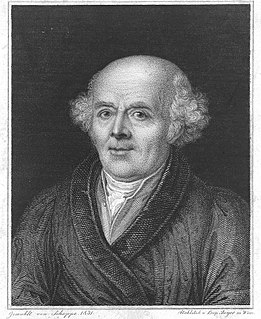A Quote by Frans van Houten
In an aging world with more chronic disease, health and healthcare are enormous opportunities that we want to focus on.
Related Quotes
Every effective drug provokes in the human body a sort of disease of its own, and the stronger the drug, the more characteristic, and the more marked and more violent the disease. We should imitate nature, which sometimes cures a chronic affliction with another supervening disease, and prescribe for the illness we wish to cure, especially if chronic, a drug with power to provoke another, artificial disease, as similar as possible, and the former disease will be cured: fight like with like.
I think integrative medicine, something I've pioneered, is the way of the future. Its great promise is that it can reduce healthcare costs by shifting the whole focus of healthcare away from disease management to health promotion and prevention. They can do that two ways: first, by focusing attention on lifestyle medicine, which is very deficient. And second, by bringing into the mainstream treatments that are lower cost because they are not dependent on expensive technology.
The other kind of market like technology is healthcare. Nobody likes the healthcare industry, but on the other hand, everyone wants to live longer. The way I look at it, there's going to be tremendous pressure with healthcare as a percentage of GDP rising with new technology, an aging population, and a business model that basically keeps people alive longer to consume more healthcare products.
HIV/AIDS from converted from a lethal disease into a chronic disease because basic scientists' fundamental research was done that illuminated aspects of that virus and allowed the generation of therapies like antiretroviral therapies. And so now HIV/AIDS is not a lethal disease, it is a chronic disease.
...There's a lot of money in the Western diet. The more you process any food, the more profitable it becomes. The healthcare industry makes more money treating chronic diseases (which account for three quarters of the $2 trillion plus we spend each year on health care in this country) than preventing them.
Calcification is the hardening of body tissues by calcium salts or deposits. Although calcification itself is not considered a disease, it has been shown to be a significant contributing factor in nearly every known illness and aging condition, including heart disease, kidney stones, gallstones, chronic inflammation, arthritis, cancers, cataracts, eczema, psoriasis, and even wrinkles.
The quality of health care in Germany is not as good as people sometimes believe it to be. We have problems with chronic diseases. The German system allows too many hospitals and specialists to treat chronic diseases. We do not have enough volume in many institutions to deliver good quality, and we do have fairly strict separations ... between primary physicians, office specialists and hospital specialists. But I think the quality problems can be solved in the next couple of years, and we have made major progress in diabetes, coronary artery disease and pulmonary disease care.


































